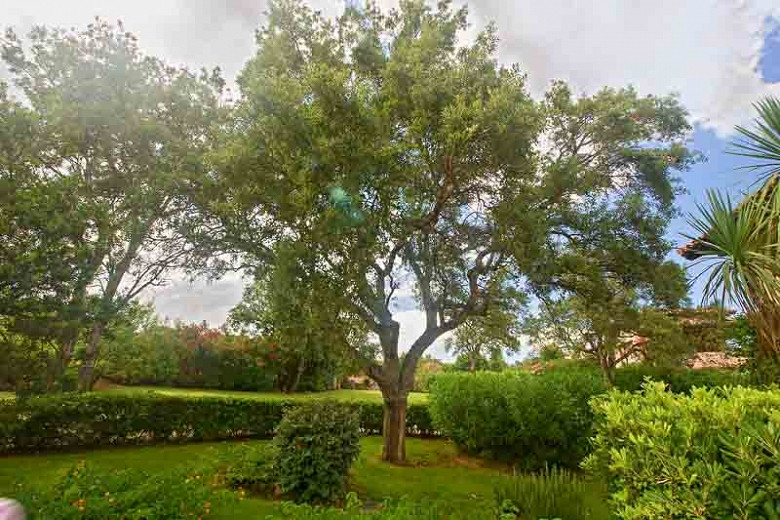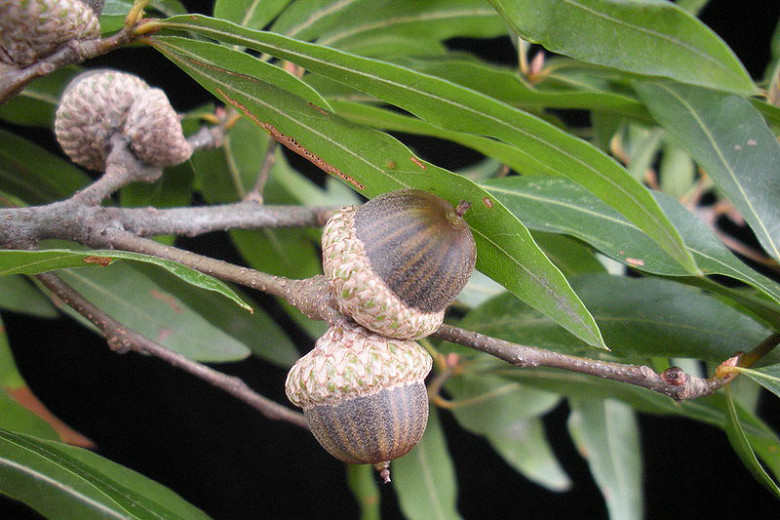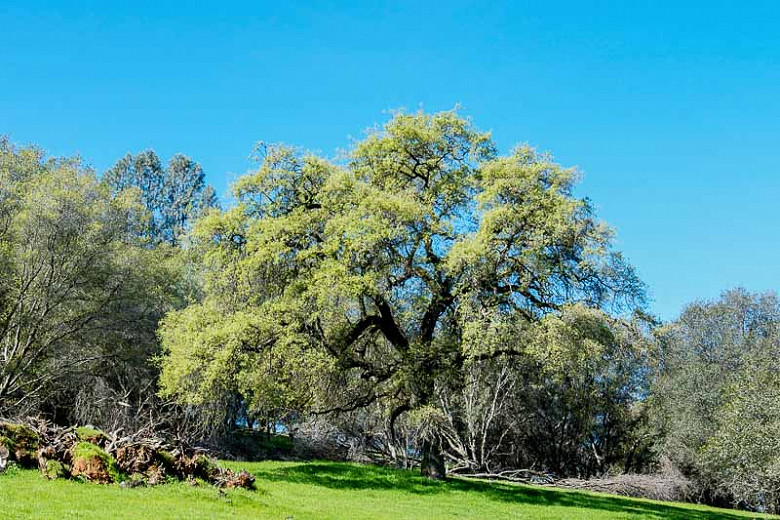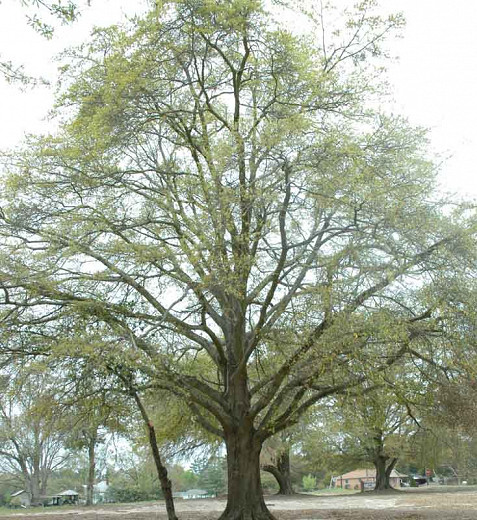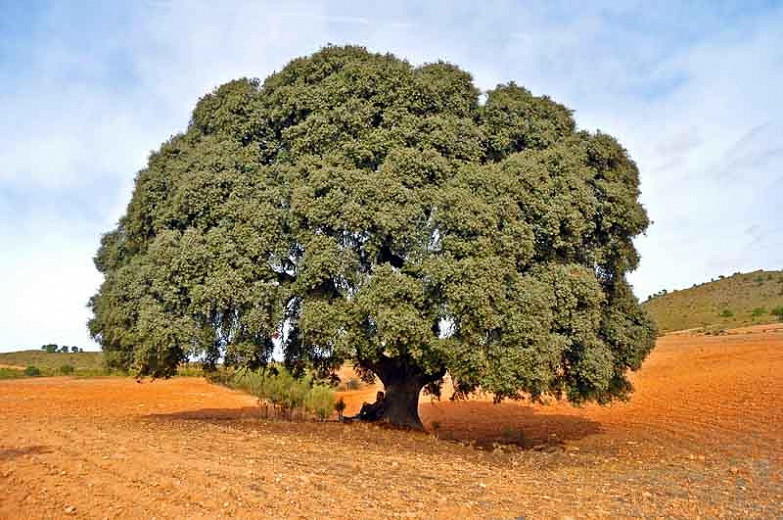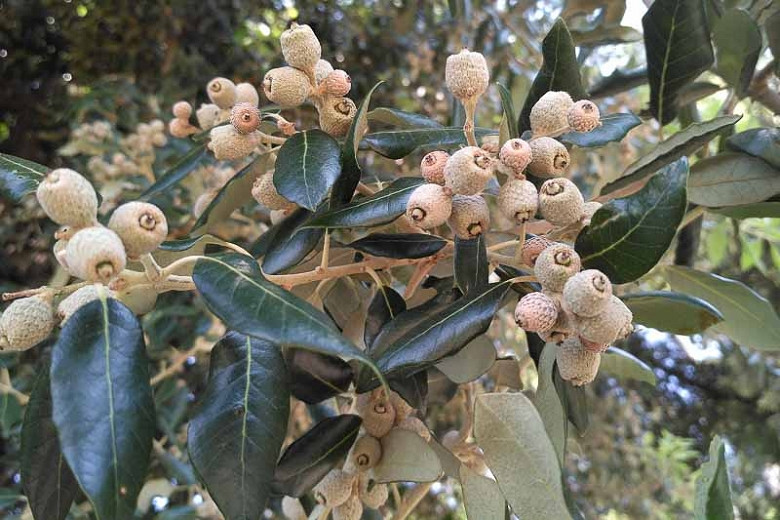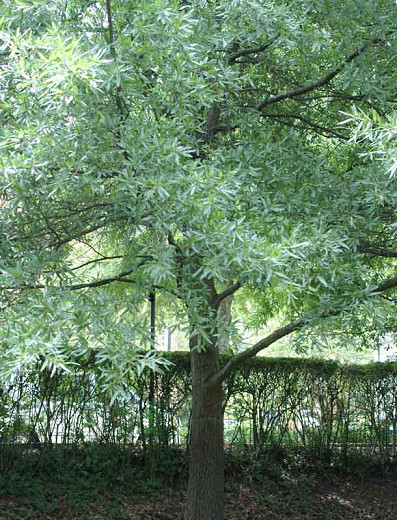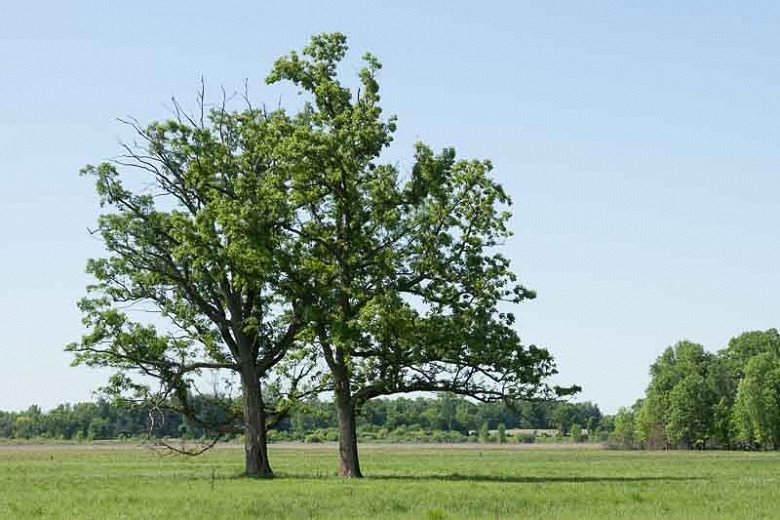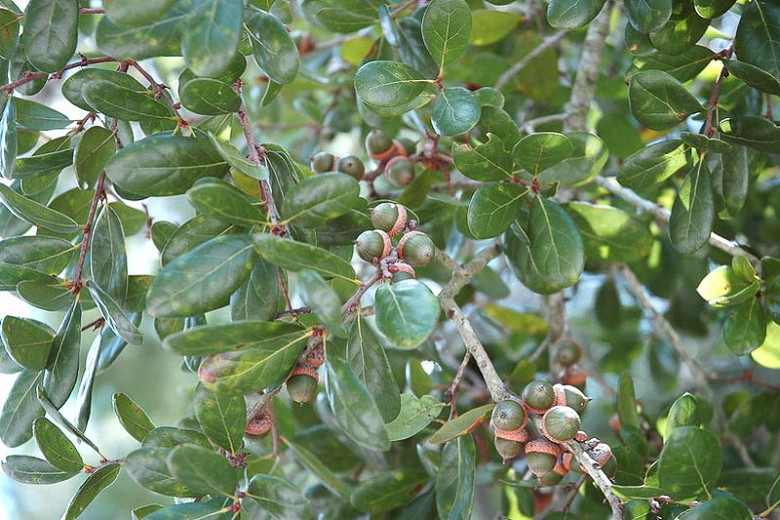Quercus cerris (Turkey Oak)
Fast-growing, Quercus cerris (Turkey Oak) is a large, spreading deciduous tree of broad pyramidal habit. The foliage of narrow, oblong, lustrous dark green leaves, 5 in. long (12 cm), has deep, pointed lobes and turns yellow to gold in late fall. Inconspicuous yellow-green catkins appear in spring as the leaves emerge. The trunk and branches, with their deeply furrowed mauve-gray bark and reddish-brown or orange fissures, provide architectural elegance and winter interest. Its oval acorns, 1 in. long (2.5 cm), are a valuable source of food for small mammals and birds, but they do not ripen until fall of the second year. Noble, Turkey Oak can withstand air pollution, is relatively tolerant to drought and has an attractive appearance. It makes a great shade and specimen tree.
- Grows up to 40-60 ft. tall and wide (12-18 m).
- A full sun lover, this tree is easily grown in most deep, fertile, well-drained soils. Drought tolerant.
- Keep an eye out for aphids, caterpillars, leaf-mining moths, oak gall wasps and powdery mildews.
- Propagate by seed, sown as soon as ripe, in a cold frame.
- Toxic to horses.
- Native to western Asia, Europe.
Requirements
| Hardiness | 6 – 9 |
|---|---|
| Heat Zones | 7 – 9 |
| Plant Type | Trees |
| Plant Family | Quercus – Oaks |
| Exposure | Full Sun |
| Season of Interest | Spring (Early,Mid,Late)Summer (Early,Mid,Late)FallWinter |
| Height | 40' – 60' (12m – 18m) |
| Spread | 40' – 60' (12m – 18m) |
| Water Needs | Low, Average |
| Maintenance | Low |
| Soil Type | Chalk, Clay, Loam, Sand |
| Soil pH | Acid, Alkaline, Neutral |
| Soil Drainage | Moist but Well-Drained, Well-Drained |
| Characteristics | Showy |
| Tolerance | Drought |
| Garden Styles | Prairie and Meadow |
